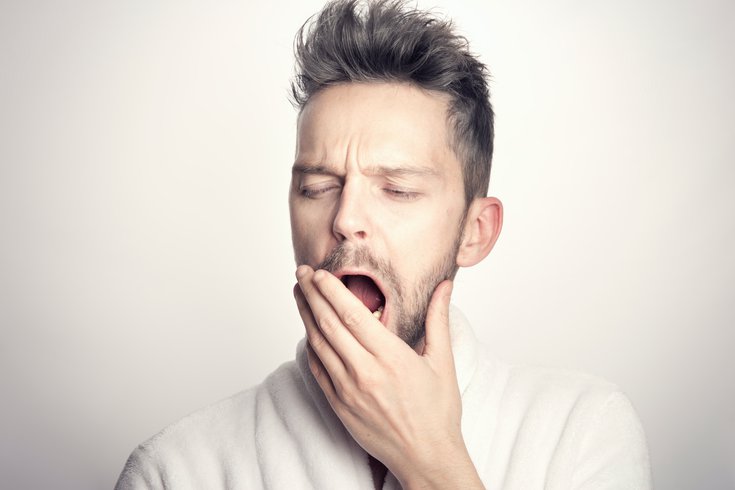
May 11, 2023
 Sander Sammy/Unsplash
Sander Sammy/Unsplash
People with obstructive sleep apnea often experience extreme daytime fatigue. While treatment for their condition helps them get a better night's sleep, sometimes daytime fatigue lingers.
Many Americans struggle to stay awake during the day, operating on some sort of sleep deficit. While an occasional poor night's sleep is no major concern, frequent daytime sleepiness could be a symptom of something more serious.
Excessive sleepiness is associated with kidney disease, heart disease, high blood pressure, diabetes, obesity, memory loss, mood regulation, depression and even early death. It can affect personal relationships and your job performance, and a lack of sleep also comes with a higher risk of injury.
The Sleep Foundation emphasizes sleep quality is as important as the length of time a person sleeps. Sleep recommendations vary by age, but for most people the optimal time length is 7-9 hours. If you're getting that much sleep nightly and still struggling with concentration and memory, or if you become easily irritated, the cause of your excessive sleepiness should be further examined.
Sometimes it is not just bad sleep habits that lead to groggy days. If you are tired all the time, you should be evaluated for a sleep disorder. The most common are insomnia and sleep apnea.
People with obstructive sleep apnea often experience extreme daytime fatigue. While treatment can help obtain a better night's sleep, daytime fatigue can still linger. But a new study suggests medication does help, as does wearing a positive airway pressure mask, which uses compressed air to keep a person's airways open, while sleeping.
"The most important thing that people with OSA should do is use their PAP machine, but if they are still sleepy there are options in the form of medications that can reduce their tiredness," said Dr. Tyler Pitre, a resident physician at McMaster University who is the author of a study that compared the effectiveness of anti-fatigue medications.
Pitre said being tired during the day can make a person less productive, and it increases the risk of other psychological issues.
Other health conditions, like depression, anxiety, lupus, Parkinson's disease, cancer, chronic pain and obesity, can impact sleep. Some medications have effects, too. It is important to identify underlying health issues and treat them as soon as possible.
When there is no underlying cause to treat, simple life hacks can help you get through those midmorning and afternoon slumps. Here are tips from Healthline and Verywell Health about how to give yourself a spark of energy:
• Drink caffeine: A cup of coffee or two can be just the right energy boost to help make it to the end of the day. The stimulant increases brain and nervous system activity.
• Power nap: A short nap, no more than 15-30 minutes, can stave off fatigue. If you can find a way to squeeze in a workday nap, whether in your office or car, go for it!
• Take a quick walk: Exercise reinvigorates all your senses. Take a walk outside or around your office building if you don't have a lot of time.
• Set the right ambiance: Have you noticed that when you are tired, a quiet office and dim lights only make it harder to keep your eyes open? Try wearing headphones while working, pump up the music and let in some natural sunshine.
• Splash water on your face: A jolt of cold water can reenergize you in a pinch.
• Don't eat a big lunch: A heavy midday meal will only make you more tired, so try to stick to something light like a salad. The more healthy protein and vegetables, the better.
• Take breaks and alternate tasks: Changing things up keeps your mind stimulated.
Good sleep hygiene is also important. This means going to bed and waking up at the same time every day and creating a comfortable sleeping atmosphere so you are not frequently waking in the middle of the night. You can find more tips here.